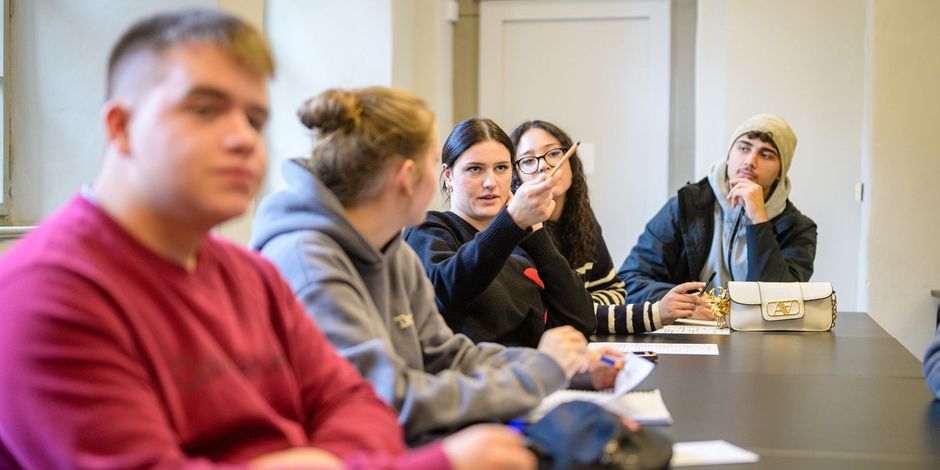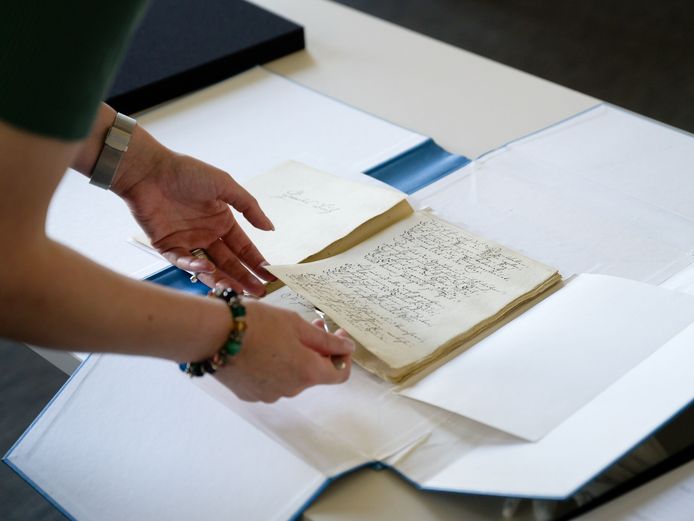Projects of the Klassik Stiftung Weimar are funded by the European Regional Development Fund (ERDF) and the Free State of Thuringia, represented by the State Chancellery of Thuringia, Department of Culture and the Arts.

Seminars
Our seminars offer pupils the chance to examine and discuss selected topics in greater depth and produce their own short presentations.
Booking information
Duration: 90 min
Price: 70 €
for up to 25 persons
From the Manuscript to the Printed Book
How does literature come about? And what does a literary archive actually do? The creation of a literary text is illustrated using the example of a manuscript of the ballad “Die Kraniche des Ibykus” (The Cranes of Ibycus) and the exchange between Schiller and Goethe. From the conception of ideas to publication in various editions, students work in groups to explore how texts change in deluxe editions, historical-critical editions, or Reclam booklets. In the process, they gain insights into analog and digital methods of archival work. Afterwards, participants are given a brief tour of the Goethe- and Schiller-Archive.
• Recommended for grades 10 to 13

Weimar Classicism and National Socialism
Weimar has been shaped by radical twists and turns of history. The era of Weimar Classicism is often celebrated as the “Golden Age” of Weimar, while the “dark chapter” of National Socialism is relegated to Ettersberg, the site of the Buchenwald concentration camp. However, one cannot neatly separate these layers of Weimar history from one another. This seminar explores the town’s ambivalent relationship to National Socialism and Weimar Classicism. We recommend combining the seminar with a visit to one of the poet residences (e.g. Schiller Residence, Goethe National Museum, Goethe Gartenhaus).
• Recommended for grades 9 to 13
Faust – A Media Legend
With a spotlight on Weimar’s extensive Faust collection, the pupils investigate how literary characters are inducted into the canon and eventually become elements of pop culture. They are first introduced to works belonging to the Faust collection in Weimar. In addition to describing the mediality of various items, the seminar illustrates how collections often embody society’s cultures of remembrance and explains the process of literary canonisation. Participants are then divided into small groups to discuss such topics as “Faust in the fine arts”, “Faust in National Socialism”, “Faust on stage” and “Faust in contemporary pop culture” based on individual objects. We recommend combining the seminar with a visit to the Herzogin Anna Amalia Bibliothek (HAAB).
• Recommended for grades 10 to 13

Human Images
How did different eras view humanity—and how do visual representations continue to shape our thinking today?
In the “Human Images” seminar, we explore the history of humankind together: from the ideals of Weimar Classicism to the ideological propaganda of National Socialism to the diverse, contradictory role models of our present day. Using exemplary images, students will learn critical reading and a confident approach to historical and media imagery. We recommend this seminar as the beginning of a multi-day excursion and in combination with the "Staged History" themed tour.
- Recommended for grades 9 to 13

